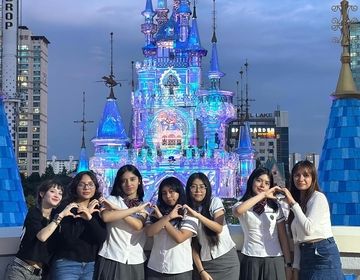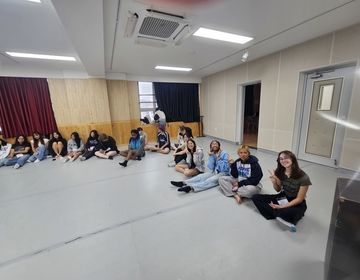Reflexive Essay - Carol Chin
Looking back to the start of this program my knowledge of Kpop was based solely on the clear fact that I enjoyed listening to it to such an extent that I knew each member's name, watched their live streams, and bought all the albums of my favorite group. Kpop was my icebreaker in high school but for a long time it remained only as a form of entertainment and a stress reliever. Never could I have imagined it to have grown to hold such an importance nor would I have ever believed that I would learn to comprehend it to such a high degree.
What interested me the most about the class was that it went far beyond what I expected and even threw me some curveballs. Despite previous hypothesis of fervent debate and discussion of our favorite groups, the class itself turned out to be something completely different. We instead learned the origins of Korean pop culture and furthermore what allowed it to develop to such an international sensation. We also focused on aspects of Kpop that are widely ignored despite being highly debated topics elsewhere.
Another discussion that threw me for a loop appeared to be the persisting question of how we can define Kpop which we attempted to do on our last day of class. Kpop is a form of music that is neither a complete copy of Western music nor is it a form of traditional Korean music. Kpop is a music genre that takes the aspects and influences of foreign nations in order to create a work that is uniquely theirs. This description can be defined through the words of Paul Thompson, head of Marz Music Group who explained the way in which Kpop builds and explodes constantly while at the same time showing off the abilities of each individual performer.
Related Posts

Kpop Immersion: Exploring Lotte World & Coex Mall
As we come near the end of the program, we got to explore more of Seoul! First, Global Navigators got to enjoy an entire day at Lotte World. Located in... keep reading

Kpop Immersion: Week 2 At A Glance
As of now, we are midway through the Kpop Immersion program! This past week has been filled with fun activities. We started off the week escape rooms and karaoke in... keep reading

Seoul Searching with Seoulmates
After 5 days in Seoul, our global navigators are living up to their names as they have gotten the hang of using public transportation and exploring Seoul. On day 6... keep reading
